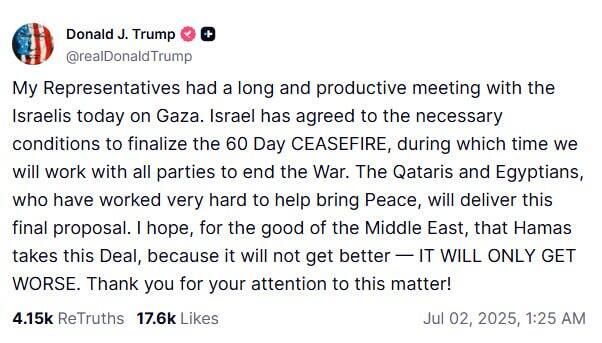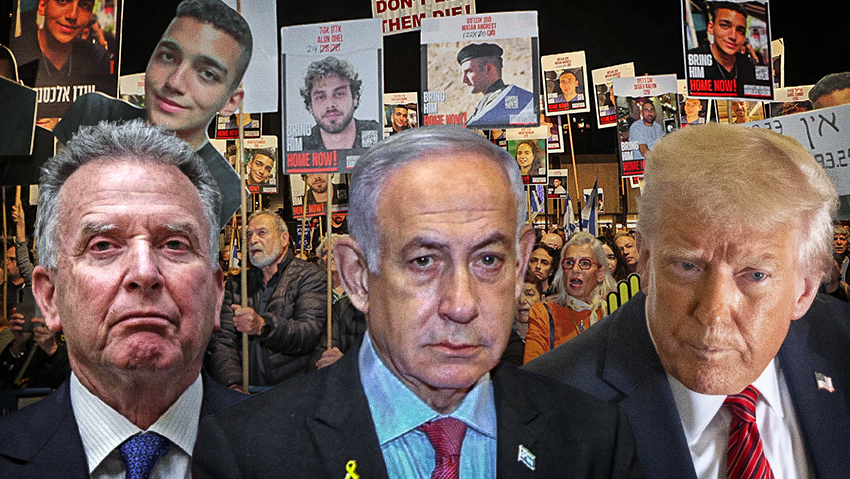U.S. President Donald Trump announced late Tuesday that Israel has agreed to the "necessary conditions" for a 60-day ceasefire in Gaza, a move tied to a new proposal introduced by Qatar during a visit to Washington by Strategic Affairs Minister Ron Dermer.
According to U.S. officials who spoke with CNN, the latest offer still requires approval from Hamas. The proposal, finalized in recent days after months of behind-the-scenes negotiations, was spearheaded by Trump’s special envoy to the region, Steve Witkoff.
2 View gallery


US President Donald Trump social media post on potential ceasefire deal
(Photo: from X)
In a post on Truth Social, Trump said that over the proposed 60-day pause, “we will work with all parties to end the War.” A U.S. official told CNN the new Qatari draft was designed to address Hamas’ concerns over earlier proposals.
However, it remains unclear whether the current proposal includes guarantees for a permanent end to the war — a key demand repeatedly made by Hamas and a central sticking point in previous talks.
Get the Ynetnews app on your smartphone: Google Play: https://bit.ly/4eJ37pE | Apple App Store: https://bit.ly/3ZL7iNv
Trump noted that “My Representatives had a long and productive meeting with the Israelis today on Gaza,” likely referring to Dermer’s meetings with senior U.S. officials, including Witkoff. He also praised the roles of Qatar and Egypt, saying they had “worked very hard to help bring Peace.”
2 View gallery


Steve Witkoff, Benjamin Netanyahu, Donald Trump
(Photo: REUTERS/Evelyn Hockstein, AP Photo/Alex Brandon, Yariv Katz)
The president concluded his remarks with a pointed warning to Hamas: “I hope, for the good of the Middle East, that Hamas takes this Deal, because it will not get better — IT WILL ONLY GET WORSE.”
The new proposal comes just days after Qatar helped broker a ceasefire between Iran, Israel and the United States, and months after the original Gaza truce plan — presented by Witkoff — collapsed. While Israel and the U.S. backed the earlier drafts, Hamas rejected them over concerns they lacked assurances that the war would be permanently ended.


